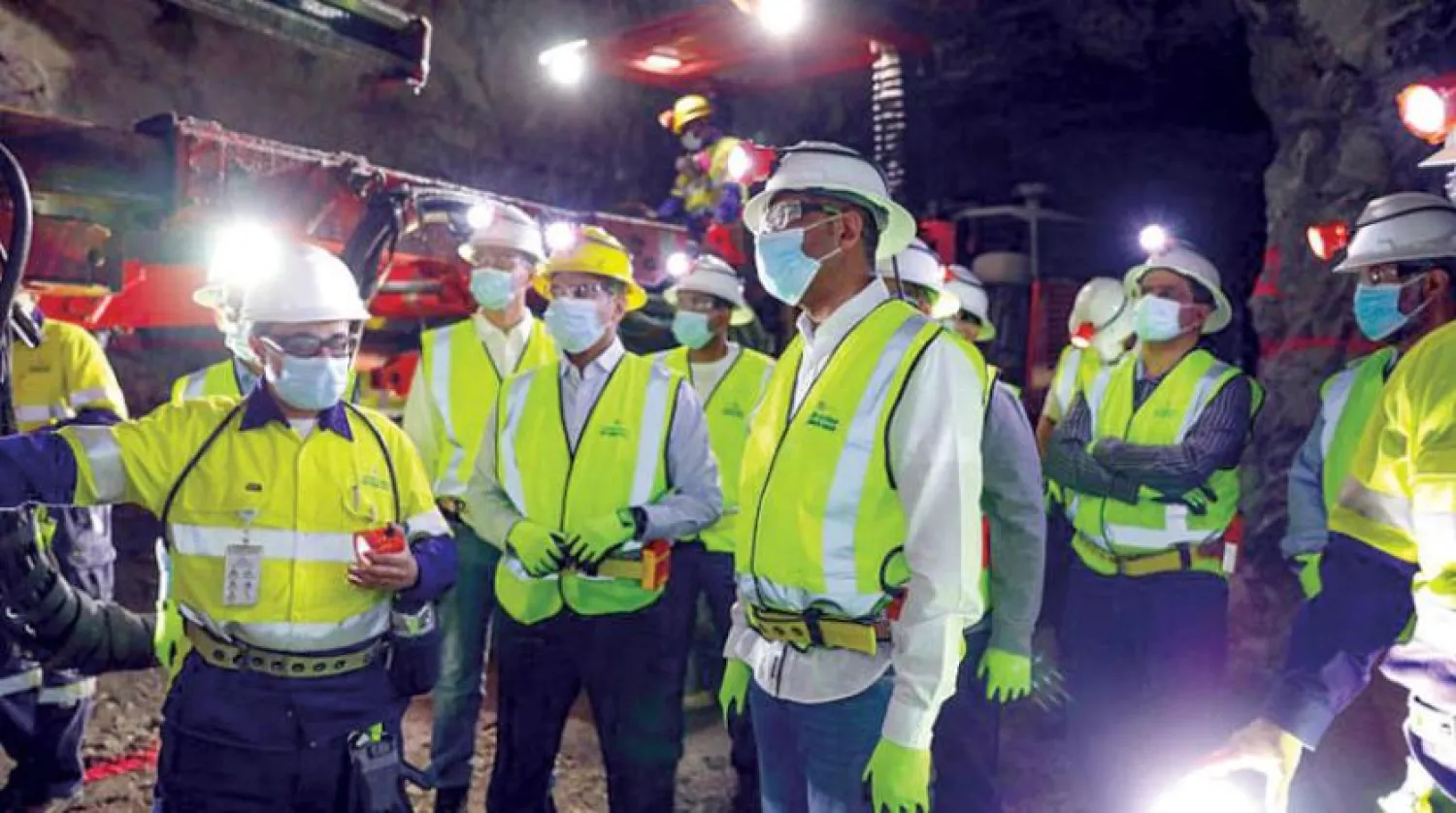Saudi Arabia will host on Tuesday a round-table meeting of ministers concerned with mining affairs, to discuss the means to build a conscious global mineral sector that meets the increasing demand for strategic minerals.
Sixty countries, represented by 40 ministers and 18 high-level officials, will participate in the meeting, along with 10 regional and international organizations.
According to information obtained by Asharq Al-Awsat, the round table will discuss the “Metals and Energy Transition”, at a time when the metal sector is expected to play a vital role in moving towards a low-carbon future with clean technologies that rely on solar panels, wind turbines and electric cars.
Another topic for discussion is “Minerals and Development”. The demand for minerals provides an opportunity for countries rich in resources to be able to use their revenues to support the goals of sustainable development.
It is estimated that the future will depend heavily on mineral resources, such as nickel, aluminum, copper, lithium, cobalt, and rare earth metals.
According to the World Bank estimates, the production of strategic minerals could increase by up to 500 percent by 2050, due to the rise in demand for minerals used in renewable energy and electric vehicles.
Moreover, in order to achieve the target to reduce global temperatures well below 2°C, the World Bank estimates that more than 3 billion tons of minerals and metals will be needed.
Studies show that between 2020 and 2040, the demand for lithium will grow rapidly and is expected to increase 42 times.
In addition, achieving net zero emissions by 2050 will require a significant increase in minerals production.
The aforementioned developments, according to studies, confirm that there is a need for significant increases in the supply of minerals and metals to ensure the continuous expansion of low-carbon energy, transportation technologies and infrastructure.
The planned ministerial meeting will also discuss innovation and cooperation in the mining and minerals sector, as transformation based on innovation requires the cooperation of policy makers and mining companies in all parts of the value chain.
Greater knowledge of national mineral resources and geological survey operations may be necessary to update information, as the lack of geological data and technology may impede investment in mineral development and related supply chains, thus further restricting mineral supply opportunities and reducing response to future needs.
The last of the ministers’ discussions on Tuesday will focus on “Sustainability across the Value Chain”, where governments and companies must remain committed to ensuring a high level of environmental, social and institutional governance for all standards.
In addition to financiers, communities, customers and consumers, there is a growing need for compliance by regulators, including stock markets.
The meeting will also emphasize the role that countries in the region, extending from Africa to West and Central Asia, can play in providing the world’s mineral needs in the future.









